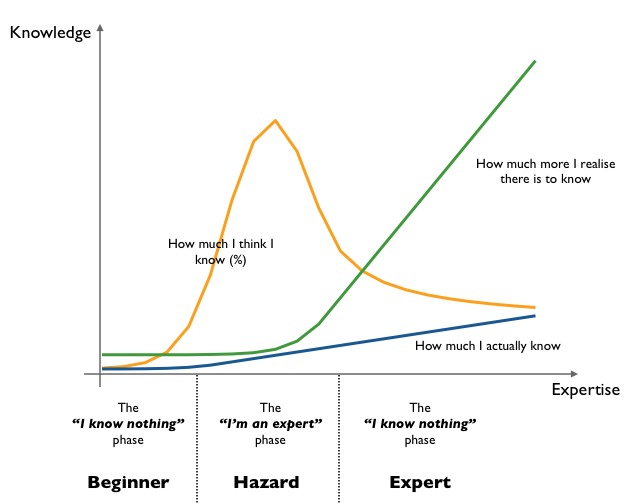Hillary vs. Donald. It may be my outsider’s view of the 2016 American election, but how is this even a contest? What rational, informed person would ever think that Donald can even hold a candle next to the qualifications, significant achievements and abilities of Hillary? She has spent her entire adult life advocating for others and only slightly fewer years in public service. He only ever had interest for himself and his businesses until he started his run for president last year. Ugh, should I even attempt to write a blog post about my bewilderment about the 2016 American election happening south of our border? The whole thing is disheartening.
But, I love puzzles and mysteries. I get a real satisfaction from thinking through a puzzle and coming up with an answer. And so, I’m following the election with the kind of perverse interest and investment of time, because feels like there will be the big plot reveal come November 8, 2016. I have clues and strings of narrative in the jumbled ball of information stuck in my head. The following is an attempt to lay out these clues and muse about what it might mean for the outcome.
Globalization of goods, people, capital, and information
Just think of the advances in technology in the last 40 years in transportation (airplane travel, cargo shipping), communications (cable television, cellular telephones, internet, social media), and computing power (calculators, personal computers, smartphones). The rate and distance of “things” moving now from one place to another is staggering compared to 40 years ago. With this movement comes change. And we humans don’t typically like dealing with change because it means we have to recognize there is a change, and then make the effort to change ourselves.
The rapid pace of change unmoors us from feeling secure
We derive a sense of ourselves by a)the families and communities we belong to, and b) the benefit to our society through the work we do.
Membership in our families and communities make us feel secure. We feel belonging, a sense of place in our history, and feel like we are collectively striving toward a common purpose. Think of a country as just a large (huge!) community. Robert Waldinger has an post at ideas.ted.com that was a helpful explainer on the psychology of this:
Why it’s so tempting to build walls and shut people out (and what to do instead)
The rapid influx of people, ideas, and goods is causing changes in our communities much faster than many people are able or willing to deal with. Instead of taking Robert Waldinger’s advice for countering the walls we instinctively want to build up, these people want to double-down the wall building. I can only guess they think that taller walls will help anchor them in the shifting sands they stand on.
Then as much as we hate to say that our job defines us as a person, it is a way many of us do indeed define ourselves. Losing your job in a layoff and finding your skills are no longer valued enough to be paid for is demoralizing, and a forgivable cause for an existential crisis. I can imagine anger being a natural part of the aftermath, and that anger needs an outlet at something, or someone.
We are not dealing effectively with the overabundance of information
The age of the internet heralded the promise of democracy in news and information. Independent voices could then be heard, instead of being muzzled or censored by those in power of the limited number of news and media outlets. But just like the promise of thoughtful conversation and engagement in the comments section quickly degenerated into trolls spewing loudly, the lower barrier to broadly publish thoughts and opinions meant a dramatic increase in outlets for information, of wildly varying quality.
Respected journalism does this work to curate and provide context to the news occurring in our communities and the world. They provide differing opinions to consider. However, doing this well takes a measure of time and effort, and news organizations have moved the measure of success to be who posts it first and who gets the most eyeballs for ad revenue. How many citizens actually pay for the news anymore, right? It’s arguably all free on the internet now. With this loss of fidelity in the news we’re consuming, are more of us moving to the Hazard zone of this States of Knowledge chart? (I certainly know where I’d put Trump on this chart)

My kids have a “Media Studies” segment in their elementary school curriculum. Hopefully it’s effectively designed to help them deal with this problem of information overabundance. I know I need help.
Going with our gut
So what do we do when we’re faced with a barrage of information that takes tremendous amount of effort to process? We have to winnow down the information we take in to a manageable amount. A really easy way is to stay informed via our trusted social circles and what they share via social media. A kind of collaborative curating of relevant information, but echo chambers form easily.
Making the effort to get other points of view is so, well, effortful, and we are already trying to deal with so much media. Then when it comes to a really large decision where it would be in our best interest to consider all relevant facts and contradictory opinions, it’s way easier to “go with our gut”. To go with what we inherently feel is true regardless of reality. Quito Maggi writes that the disproportionate split of voters that vote with their head, vs, heart, vs gut, will be a major factor in who wins the election. I’m really hoping that bottom part of the pyramid isn’t as big as this diagram suggests.

We don’t know how government works
I have a sneaking suspicion that Trump and many of his supporters don’t actually know how government works. Does he think he can run the country like he runs his businesses? That everyone will just have to carry out whatever he orders because he decided it? Unfortunately, that would be a dictatorship.
This illiteracy about the kind of hard work that is involved to build consensus and make forward momentum with elected representatives, civil servants, and other domestic and international influencers is alarming.
Democracies end when they are too democratic
It’s true, someone with a blatant disregard for facts, context, nuanced opinion and thoughtful policy has the same weight in the voting booth as one who does value these things. There is no license or test to determine your suitability as a voter; that is the benefit and the burden of a truly inclusive democratic society. This long read article “America Has Never Been So Ripe for Tyranny” by Andrew Sullivan in the NY Magazine is sobering, to say the least.
And it is when a democracy has ripened as fully as this, Plato argues, that a would-be tyrant will often seize his moment.
The 2016 American Election – Where do the clues lead?
Seeing these thoughts laid out, it’s no longer bewildering that this election race is as close as it is. It no longer seems like a fevered nightmare come to life, making it the more unsettling and deeply scary. We’ll see how the plot is revealed come election day.
~Jen
Featured image Photo credit: acearchie via Visual hunt / CC BY-NC
